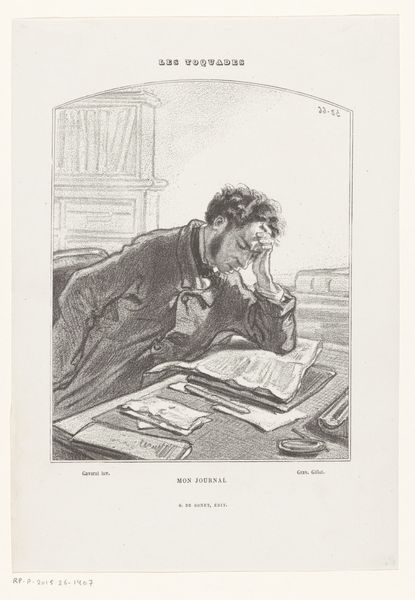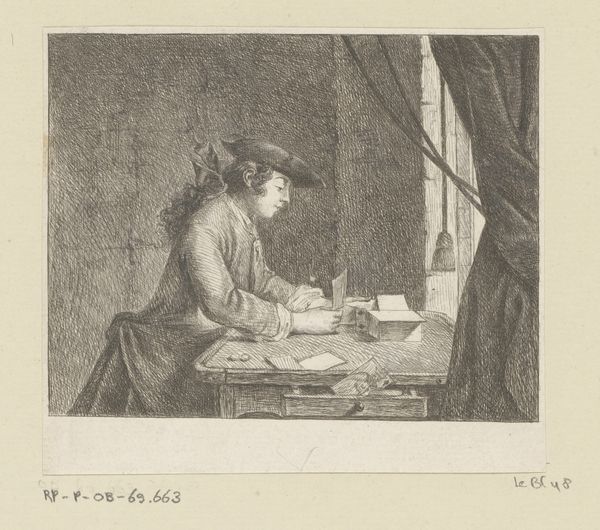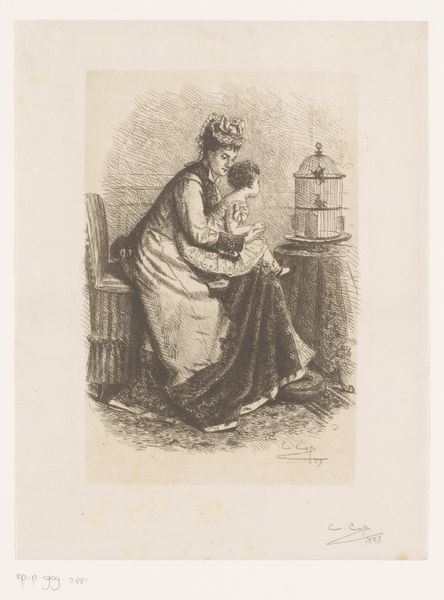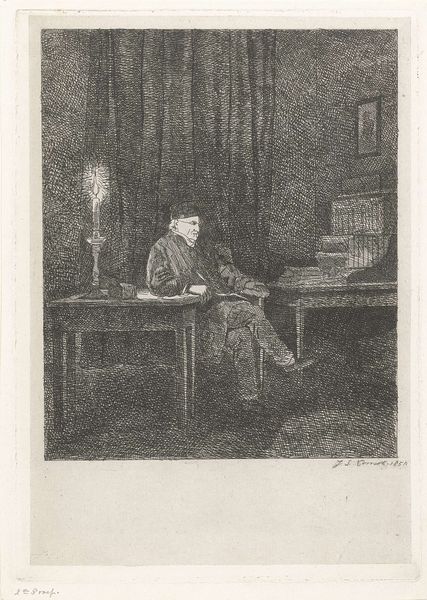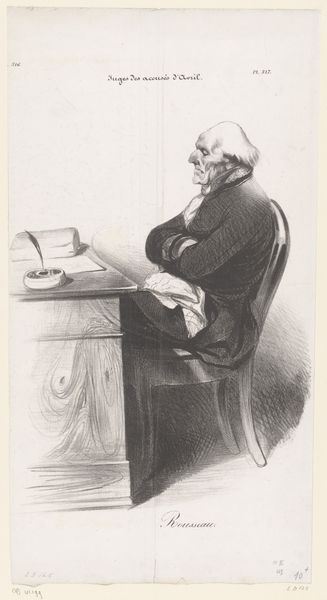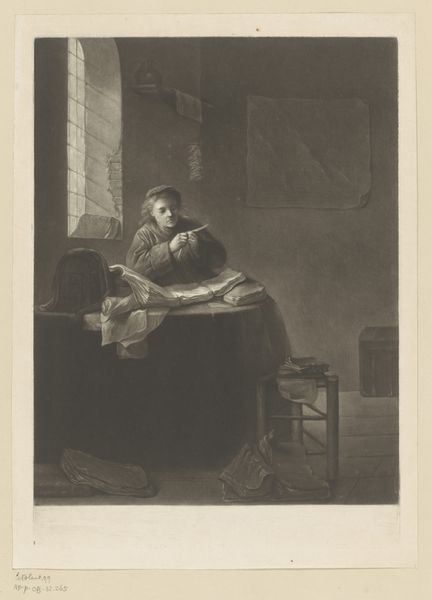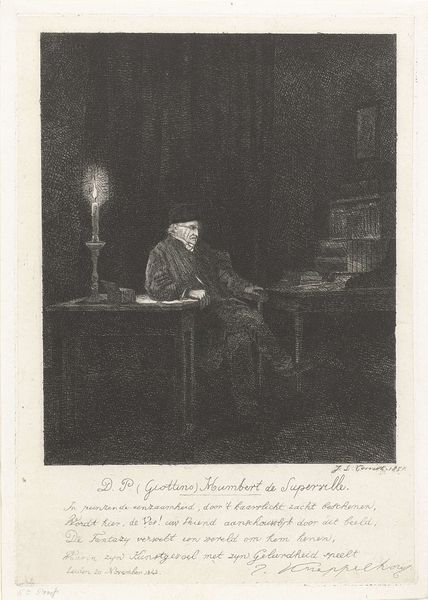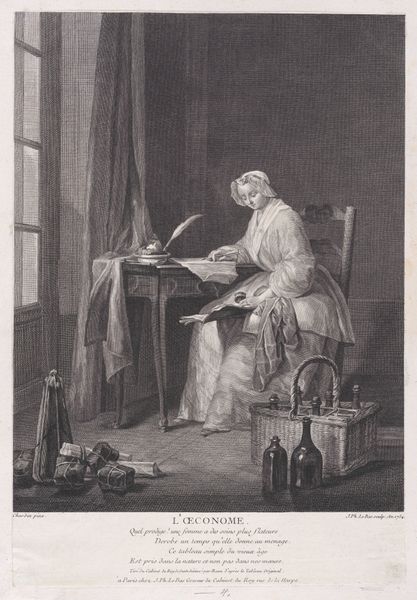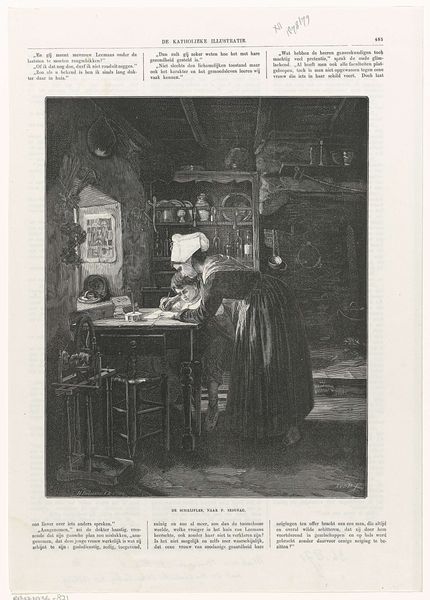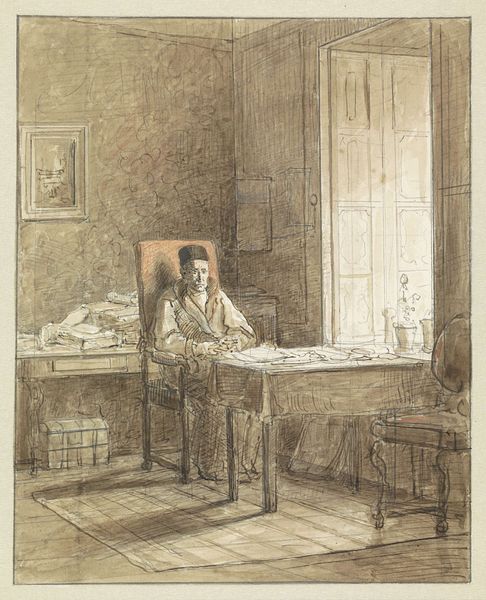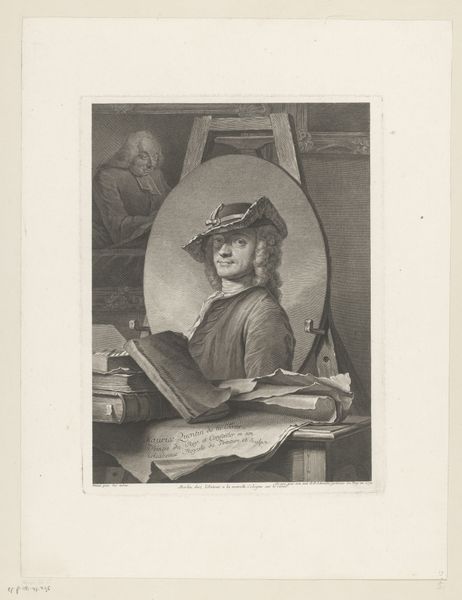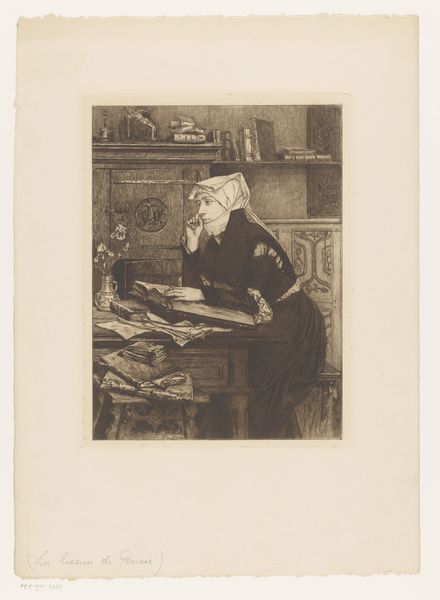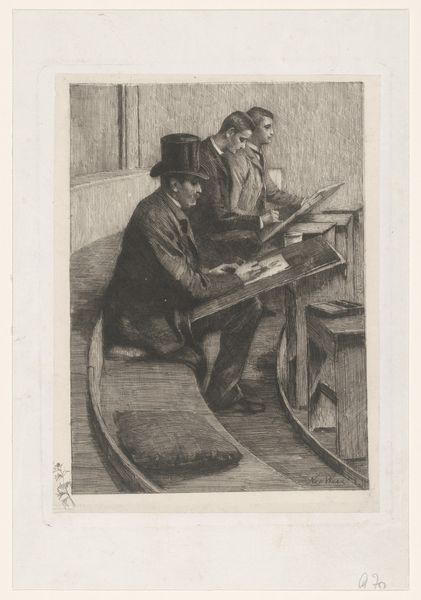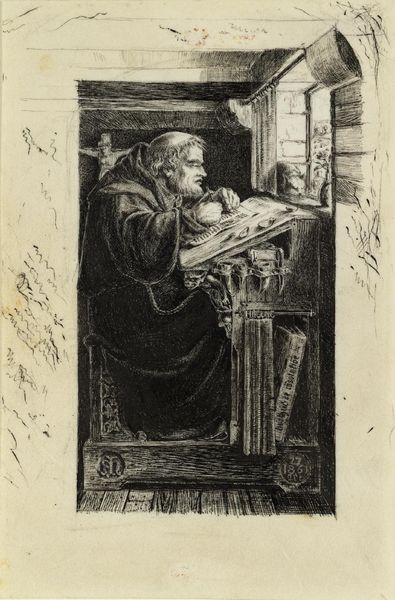
drawing, print, engraving
#
portrait
#
drawing
#
baroque
# print
#
old engraving style
#
line
#
genre-painting
#
history-painting
#
engraving
#
realism
Dimensions: Sheet: 14 9/16 × 9 7/8 in. (37 × 25.1 cm)
Copyright: Public Domain
Bernard Lepicié created "The Philosopher" as an etching in 1744. The philosopher, hunched over his texts, is surrounded by the tools of his trade: books, writing implements, and flasks. But it is the process of etching itself that I find compelling here. Etching is a printmaking technique that uses acid to cut into a metal plate, which is then inked and printed. The fine lines and tonal variations we see here are the result of Lepicié's careful control over this chemical process. The corrosive action of the acid literally bites into the metal, creating an image that is both delicate and enduring. Consider the labor involved: the preparation of the plate, the precise application of the acid, and the skilled printing process. Each step requires expertise and attention to detail. "The Philosopher" reminds us that knowledge and creation are not simply the product of intellectual thought, but also of skilled labor and material transformation. It bridges the gap between the world of ideas and the world of making.
Comments
No comments
Be the first to comment and join the conversation on the ultimate creative platform.
